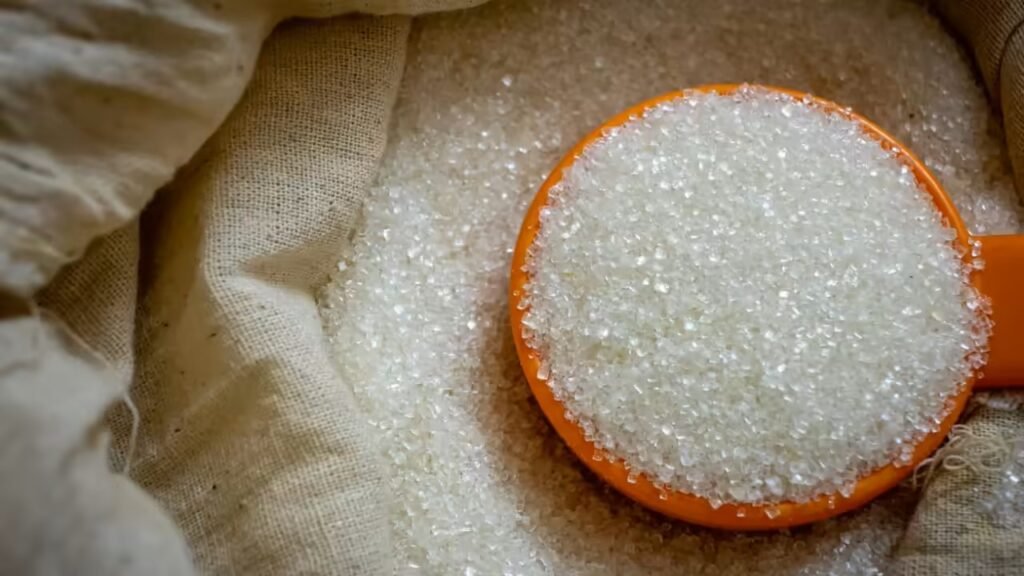In a significant move to stabilize sugar prices and control inflationary pressure in the domestic market, the Government of Pakistan has approved the urgent import of 500,000 tons of sugar. This decision, announced in late June 2025, comes amid growing concerns over surging prices, speculative hoarding, and the failure of earlier export policies to maintain equilibrium in local supplies.
A U-Turn in Sugar Policy
Just a few months ago, in early 2025, the government had allowed the export of surplus sugar, arguing that the domestic market had ample stocks and that foreign exchange could be earned through international sales. However, the move has since come under criticism from economists, farmers, and consumer rights groups. Many argue that it contributed to an artificial scarcity in the local market, triggering a sharp increase in retail sugar prices.
Now, with local prices averaging Rs. 180.93 per kilogram and touching Rs. 195 in some regions, the government has reversed course. According to the Ministry of National Food Security, the newly planned imports are intended to “restore balance in the market, break hoarding chains, and offer relief to the common man.”
Price Pressures and Market Dynamics
Recent data from the Pakistan Bureau of Statistics (PBS) shows a 3.77 rupees per kilo increase in sugar prices in just one week, with year-on-year inflation in the sugar sector exceeding 25%. Market analysts believe that a combination of speculative stockpiling by millers and a delay in refining raw sugar contributed to the surge.
While sugar mills continue to claim they have sufficient reserves, the government has accused several of withholding supply to manipulate market prices. Additionally, seasonal factors and the upcoming festive demand have further stressed the already volatile supply chain.
Why Immediate Imports?
The decision to import such a large volume on an urgent basis is not without precedent. In 2021 and again in 2023, Pakistan faced similar price shocks in the sugar market, prompting the Economic Coordination Committee (ECC) to approve imports to stabilize domestic supplies. This time, however, the situation is more complex due to the export-import contradiction that emerged in less than six months.
Minister for National Food Security and Research, Rana Tanveer Hussain, clarified in a public statement that the imports will be facilitated through the Trading Corporation of Pakistan (TCP), with all regulatory and procedural hurdles cleared to expedite the process. The sugar is expected to reach the country within the coming weeks and will be distributed via utility stores and other retail channels to ensure access at subsidized rates.
Criticism and Public Reaction
The policy reversal has drawn criticism from opposition parties, economic think tanks, and agricultural experts. They question the government’s planning and policy consistency, highlighting how the earlier decision to export sugar created the very crisis the country now seeks to fix with emergency imports.
“The same government that greenlit exports in January is now spending public money to import sugar in July. This is not just poor planning; it’s a policy blunder,” said Dr. Farooq Saleem, a well-known economist and policy analyst.
Consumers, already burdened by high utility bills, petrol prices, and food inflation, view the announcement with mixed feelings. While the promise of increased supply is welcome, skepticism remains over whether the benefit will actually reach the public or merely fill the coffers of wholesalers and middlemen.
The Broader Economic Context
This episode comes at a time when Pakistan is already facing significant economic headwinds. The Pakistani Rupee has remained volatile, and the trade deficit continues to grow, further pressuring the foreign exchange reserves. Importing sugar in such large quantities is likely to cost the exchequer hundreds of millions of dollars, adding to Pakistan’s balance of payments challenges.
Furthermore, questions are being raised about why domestic sugar production has failed to meet demand, despite favorable weather and a strong sugarcane crop in the last harvest. Critics point to inefficiencies in mill operations, lack of enforcement against hoarding, and the absence of a forward-looking commodity policy.
Looking Ahead
Going forward, policymakers will need to craft a more coherent and long-term sugar policy—one that aligns domestic production, exports, and imports in a sustainable framework. A short-term import may offer relief, but unless the root causes—such as poor regulation, speculative hoarding, and weak supply chain management—are addressed, the cycle of sugar crises will likely continue.
The 500,000-ton import plan, while a necessary stopgap measure, underscores the urgency for structural reform in Pakistan’s food supply governance. Until then, the common consumer may continue to pay the price for policy inconsistencies and market mismanagement.






